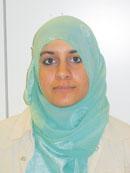To start off a series of articles on Muslim historical contributions to the world, I will begin with examples of Muslim women who are significant figures in Islamic history. As a Muslim feminist activist I believe the West has not given Muslim women a chance; not tried to truly study who are Muslim women in terms of Islamic rights bestowed upon them, how Muslim women view themselves, essentially the West has not done Muslim women justice at all. There are too many examples of Western negativity assuming Muslim women are victims in their own religion and cultures that I find it pointless to illustrate them. Instead, I will highlight some important rights that are played out through the first women of Islam.
Contrary to popular beliefs, Islamically, Muslim women have the right to economic independence. This entails: sole ownership of her income – no other person has the right to touch her money, right to contract business. A prime example of the first well renowned successful Muslim business woman known in Arabia, from the era of the beginning of Islam, is Khadija al Kubra (the Prophet Muhammad’s first wife). Even though she grew up in a male chauvinistic society, Khadjia had her own trade caravan throughout Arabia – from Medina to Damascus. As a female entrepreneur she used her business skills and gained quite a reputation. She became quite wealthy through her trades. “It is said that when Quraysh’s (a dominant tribe in Mecca (Saudi Arabia) at the time) trade caravans gathered to embark upon their lengthy and arduous journey either to Syria during the summer or to Yemen during the winter, Khadija’s caravan equaled the caravans of all other traders of Quraysh put together.” Not to mention Khadjia used her wealth philanthropically, feeding and clothing the poor, assisting her relatives financially, and even providing for the marriage of those of her kin who could not otherwise have had means to marry.
Another misconception about Muslim women concerns education. Muslim men and women are told by the Prophet Muhammad to aim high, especially educationally. Not to mention the first verse of the Qur’an revealed to the Prophet Muhammad was: “Read in the name of your Lord who created, created man from a clot. Read, for your Lord is most Generous, Who teaches by means of the pen, teaches man what he does not know.” (96: 1-5) [man in the Arabic language here is used in to refer to both men and women] The key example in terms of a voice in educating others about Islamic sciences was the Prophet Muhammad’s last wife, Aisha. Her students came from all over the Islamic empire, both men and women yearning to learn about the Prophet’s life and traditions. Her righteous title is “Mother of the Believers”. Even more so, she is actually quoted as an authentic source in oral chains of sayings (ahadith) of the Prophet Muhammad. From these two examples, we see that the first Muslim women were very active in their societies: from running businesses, to educating the masses, to aiding the poor and at the same time being proud and strong believing Muslim women. There are countless examples of Muslim women actively taking part in society who are role models for all women.
Women are rarely acknowledged for their contributions to the world, historically to the present. It is more than important to show the Western world that Muslim women are not oppressed, as stereotypes dictate. More often than not one hears about misconceptions that Islam does not allow women any rights, much less values them. I feel to dispel these myths one must not just hear theory by itself, but read about the many ambitious Muslim women who took advantage of the various rights divinely given to them and also stressed by the Prophet Muhammad (peace be upon him). Subsequently, before we assume certain stereotypes about Muslim women it is crucial to see if they are even true. In my activism I continuously stress the importance of verifying where so called facts/or misinformation comes from. In terms of Islam, we have two primary resources – the Holy Qur’an (the Divinely revealed words of Allah (God)) and the Sunnah (tradition of the Prophet Muhammad (peace be upon him) along with his collection of oral sayings – ahadith. I urge everyone to make the effort to learn about who are our (Muslim) historical figures and I will help raise awareness about our history through this series of articles on Muslim historical contributions.

